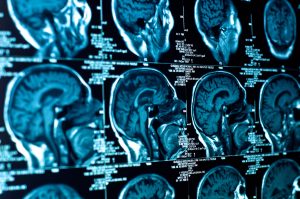In a recent development, researchers from King’s College London have used Artificial Intelligence (AI) to predict the survival of adult patients with brain cancer after receiving radiotherapy. This promising application of AI marks a significant step forward in the realm of brain cancer care, offering a new approach to treatment planning and potentially expediting life-saving interventions.
The Power of Predictive AI

Published recently in Neuro-Oncology, the research introduces a deep learning model designed to predict short-term and long-term survival outcomes for patients with adult primary brain cancer. Notably, this study is the first to utilize AI in predicting outcomes within eight months of radiotherapy, providing clinicians with a valuable tool for making informed decisions.
Focus on Glioblastoma
Glioblastoma, a challenging-to-treat form of brain cancer, poses a formidable threat, with only one in four patients surviving beyond one year after diagnosis. The research team employed deep learning, a subtype of AI, to forecast survival rates for glioblastoma patients during the crucial eight-month period following radiotherapy. This timeframe aligns with the completion of routine chemotherapy, allowing for timely adjustments to treatment plans.
Enhancing Treatment Decision-Making
Traditionally, patients undergo regular scans to assess the effectiveness of chemotherapy. However, this approach carries the risk of subjecting individuals to ineffective treatments and harmful side effects. The AI model, trained on a vast dataset comprising tens of thousands of scans from diverse brain cancer patients, revolutionizes this process. By offering an instantaneous and accurate prediction based on routine MRI scans, clinicians can now identify patients who may not benefit from chemotherapy. This allows for a more personalized and precise approach, steering patients toward alternative treatments or participation in experimental clinical trials.
Motivated by a critical research question concerning aggressive brain tumours, this study stands as a testament to the potential of AI in addressing unmet needs in cancer care. Despite being less common than other cancers, the impact of brain tumours is devastating, with a two-year survival rate of only 18%. The collaboration of 11 neuro-oncology centres from across the UK underscores the collaborative effort invested in advancing patient-centric solutions.
Moving forward
The integration of AI in predicting brain cancer patient survival represents a monumental step forward in personalized medicine. Beyond the realms of traditional diagnostics, this pioneering approach empowers clinicians to make more informed decisions, optimizing treatment plans and potentially offering a improved outcomes to those facing the challenges of glioblastoma.
To read more information on the King’s College website, click here.
Want to receive all the latest research straight to your inbox?
Sign-up our curated, jargon-free weekly research newsletter. Click here to fill out our contact form and select ‘research’ to opt into our research newsletter.
Get involved with research…
If you would like to use your experience and insight to support clinical research, consider signing up to be a PRIME advocate for brainstrust.
If you or someone you love is living with a brain tumour and have any questions around this latest news, or want to access support, give us a call on 01983 292 405 or email hello@brainstrust.org.uk. You can also visit our little brainstrust website which features support for children affected by brain tumour.









